OPEN CALL
We are excited to announce an open call to support a Catalyst Trainee Award (CTA) to continue to support ongoing Data Science and Analytics initiatives and innovative projects.
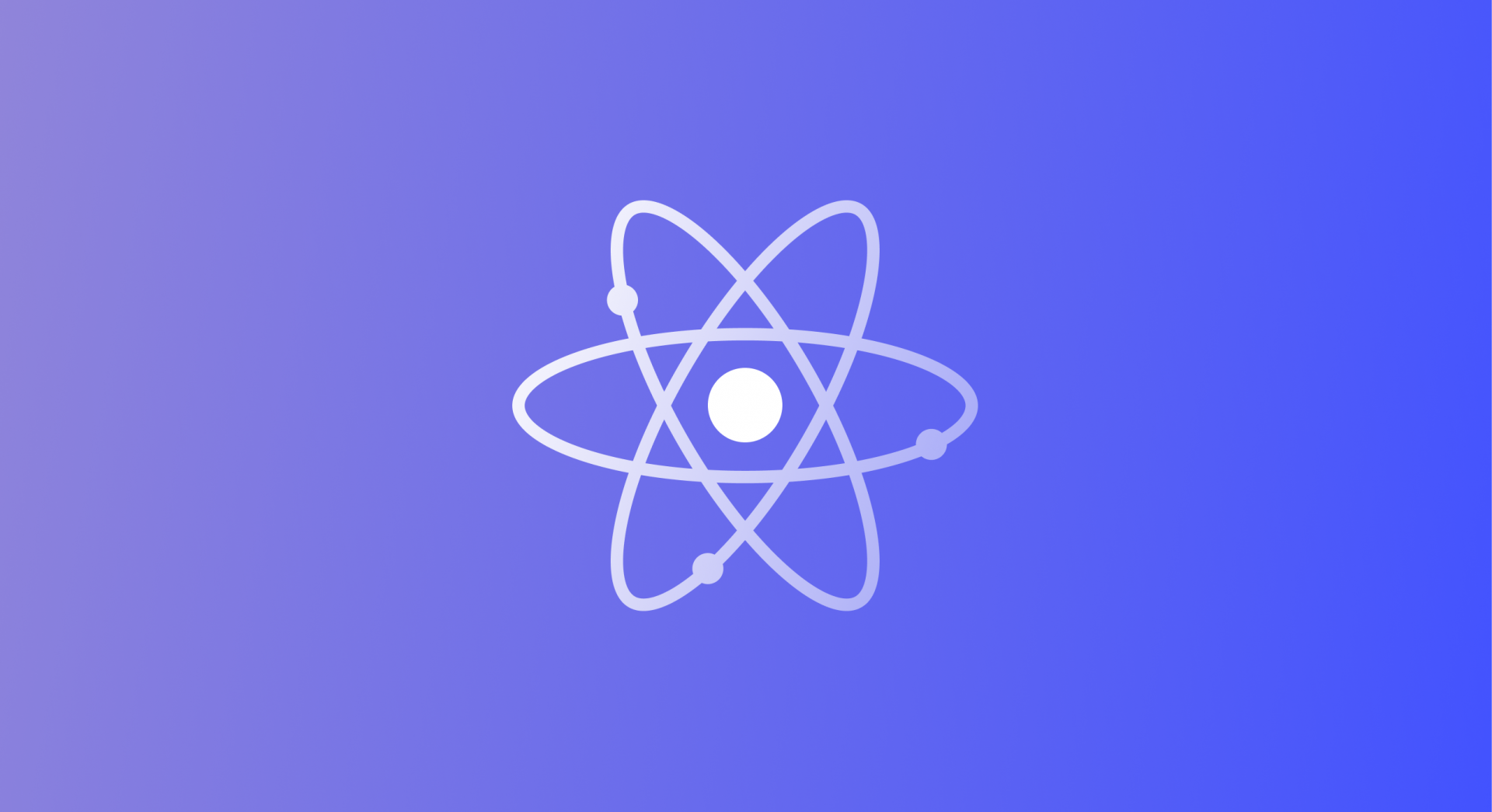
We are excited to announce an open call to support a Catalyst Trainee Award (CTA) to continue to support ongoing Data Science and Analytics initiatives and innovative projects.
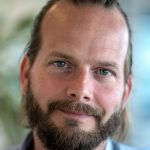
Medical Physicist and Professor of Clinical Data Science at Maastricht University Medical Center and Maastro Clinic
Prof. Andre Dekker, PhD (1974), is a medical physicist and professor of Clinical Data Science at Maastricht University Medical Center and Maastro Clinic in The Netherlands. He leads the Clinical Data Science research group (~50 staff) focusing on 1) federated FAIR data infrastructures, 2) AI for health outcome prediction models, and 3) applying AI to improve the health of patients and citizens. Prof. Dekker has authored over 200 publications, mentored more than 30 PhD students, and holds multiple awards and patents on the topic of federated data and AI. He has held visiting scientist appointments at universities and companies in the UK, Australia, Italy, the USA, and Canada.
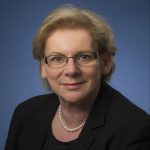
Professor of Radiation Oncology at the University of Toronto and Former Director of the Princess Margaret Cancer Centre
Dr. Mary Gospodarowicz is a Professor of Radiation Oncology at the University of Toronto and former director of the Princess Margaret Cancer Centre. Her previous research focused on clinical trials in genitourinary cancers and lymphoma. Her current interests include global cancer control including global access to radiotherapy. She is the interim director of the Princess Margaret Global Cancer Program and advisor to the Princess Margaret Cancer Digital Intelligence program. She currently co-chairs the Lancet Commission on Cancer and Health Systems and is a member of the Board of Directors of the City Cancer Challenge Foundation.
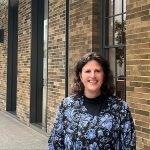
Legal and Intellectual Property Counsel, University Health Network
Lesley Rapaport B.Sc. M.Sc. LL.B is an experienced intellectual property and licensing lawyer called to the Bar in both Ontario (2000) and British Columbia (2007), and is a registered Canadian and U.S. Patent Agent. Lesley brings over twenty years of legal expertise to protecting and licensing intellectual property, with a greater depth of expertise in patenting and licensing all forms of intellectual property, as well as drafting and negotiating all other forms of research support agreements, and has increasingly focussed on the issues around data and AI. Prior to working at UHN, Lesley was the Associate Chair of the Vancouver Biotechnology Group of one of Canada`s leading national law firms, as well as the former Director of Intellectual Property of a Toronto based diagnostics company. Lesley has a Bachelor of Science (Biochemistry, University of Victoria) a Master’s of Science (Biochemistry, University of Western Ontario), and worked for a number of years as a technical support scientist for a well-known U.S. molecular biology reagents company before law school. Until recently, Lesley was a regular speaker in both Canada and the United States on developments in Canadian and U.S. patent law, and on issues relevant to patent portfolio and commercialization. Lesley also has been a legal member on Research Ethics Boards at both Women & Children’s Hospital in British Columbia, and University Health Network.

Medical Oncologist, Princess Margaret Cancer Centre
Dr. Monika Krzyzanowska is a Professor of Medicine at the University of Toronto and a medical oncologist at the Princess Margaret Cancer Centre. She is the Director of the Cancer Quality Lab (CQuaL), which conducts research to advance the science and practice of healthcare quality as it relates to the delivery of cancer care. Dr. Krzyzanowska has held a number of leadership roles related to healthcare quality at Cancer Care Ontario, Princess Margaret Cancer Centre, and with the American Society of Clinical Oncology. She is currently the Medical Lead & Chair of the Quality Program and the Clinical Practice Committee at the Princess Margaret Cancer Centre and the Department Division Director (Medical Oncology) at the University of Toronto. Dr. Krzyzanowska obtained her medical degree and clinical training at the University of Toronto and then completed a research fellowship at the Centre for Outcomes and Policy Research at the Dana Farber Cancer Institute and the Harvard School of Public Health.
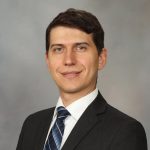
Endocrine Surgery Fellow, University of Toronto, University Health Network
Dr. Dan Moldoveanu completed his medical studies and postgraduate training at McGill University in Montreal. During his General Surgery residency, he spent three years in the lab doing translation research with a focus on identifying molecular predictors of response to immune checkpoint inhibitors in cutaneous melanoma. After his residency, he pursued a fellowship in Breast Surgical Oncology at the Mayo Clinic. He is the Endocrine Surgery Fellow at the University of Toronto and University Health Network. He is also a member of the Madani Lab where he is leading an artificial intelligence project for intraoperative guidance during retroperitoneoscopic adrenalectomy.
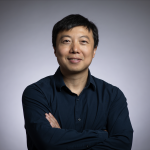
Chief Artificial Intelligence Scientist, University Health Network
Dr. Bo Wang is a tenure-track Assistant Professor in the Departments of Computer Science and Laboratory Medicine & Pathobiology at the University of Toronto. He is the inaugural Temerty Professor in AI Research and Education in Medicine. Dr. Wang is the Chief AI scientist at the University Health Network, the largest research hospital in Canada. He also holds a CIFAR AI Chair at Vector Institute. Dr. Wang obtained his PhD from the Department of Computer Science at Stanford University in 2017. His research focuses on machine learning, computational biology, and computer vision, with a particular emphasis on their applications in biomedicine. His significant contributions to these fields have led to his recognition through numerous esteemed awards, including the Gairdner Early Career Researcher Award and the Canada Research Chair Award.

Director of the Global Institute of Psychosocial, Palliative and End-of-Life Care (GIPPEC) and the Cancer Experience Program at the Princess Margaret Cancer Centre, University Health Network, University of Toronto
Gary Rodin is a Professor of Psychiatry and Director of the Global Institute of Psychosocial, Palliative and End-of-Life Care (GIPPEC) and the Cancer Experience Program at the Princess Margaret Cancer Centre, University Health Network, University of Toronto. He leads an internationally recognized clinical and research program at the Princess Margaret Cancer Centre focused on the development, evaluation and global implementation of novel psychotherapeutic interventions to improve the psychological well-being and quality of life of patients with cancer and their families. Dr. Rodin has been recognized for his global efforts to ensure universal access to psychosocial and palliative interventions and optimal end-of-life care and is currently co-leading a Lancet Oncology Commission on the Human Crisis of Cancer.

CEO, Signal 1
Tomi Poutanen is the CEO and a co-founder of Signal 1, a health AI start-up on a mission to empower frontline care providers with accurate, timely, and easy-to-use patient insights.
Tomi is a computer scientist, serial entrepreneur, and AI pioneer. He has spent his career building machine learning systems for large enterprises. He is the founder of four AI companies with exits to Microsoft, Yahoo!, and TD Bank. He is also a co-founder of the Vector Institute, a world-renowned academic research institute for deep learning, and a co-founder of Radical Ventures, a leading venture capital fund investing in companies working at the frontier of AI.
Over his career, Tomi has personally helped bring AI into use in what has proven to be some of technology’s most important applications to date. He spent the first part of his career in Silicon Valley where he pioneered the use of machine learning in web search, first at Yahoo! Search and then at Bing. In 2012, Tomi co-founded Layer 6, an applied AI company which was acquired in 2018 by TD Bank Group, one of North America’s leading financial services companies. He served as SVP and Chief AI Officer at TD Bank and oversaw the successful deployment of AI across the Bank’s lines of business in Canada and the US.
Tomi is a recognized thought leader and frequent speaker on all things AI. He was a co-author of Canada’s first National AI Policy in 2017, the first AI policy to be developed by a government anywhere in the world. He co-authored Canada’s first set of guidelines for the responsible use of AI in financial services. He is regularly invited by industry, government, and universities to share his views on the promise of AI and other emerging technologies.
Tomi holds an MSc in Computer Engineering and an MBA from the University of Toronto.

Bioethicist and Associate Scientist, Hospital for Sick Children
Dr. Melissa McCradden is a Bioethicist with the Department of Bioethics at The Hospital for Sick Children (SickKids), providing clinical and organization ethics consultations, policy, and education in bioethics. She is the John and Melinda Thompson Director of Artificial Intelligence in Medicine (AIM) where she is the Integration Lead for AIM. Dr. McCradden is also an Associate Scientist with the Genetics and Genome Biology Program at SickKids and an Assistant Professor with the University of Toronto Dalla Lana School of Public Health.

Vice President of Data Science and Advanced Analytics at Unity Health Toronto and Director of T-CAIREM
Dr. Mamdani is Vice President of Data Science and Advanced Analytics at Unity Health Toronto and Director of the University of Toronto Temerty Faculty of Medicine Centre for Artificial Intelligence Research and Education in Medicine (T-CAIREM). Dr. Mamdani’s team bridges advanced analytics including machine learning with clinical and management decision-making to improve patient outcomes and hospital efficiency. Dr. Mamdani is also a Professor in the Department of Medicine of the Temerty Faculty of Medicine, the Leslie Dan Faculty of Pharmacy, and the Institute of Health Policy, Management and Evaluation of the Dalla Lana Faculty of Public Health. He is also an adjunct Senior Scientist at the Institute for Clinical Evaluative Sciences (ICES) and a Faculty Affiliate of the Vector Institute. In 2010, Dr. Mamdani was named among Canada’s Top 40 under 40. He has published over 500 studies in peer-reviewed medical journals. Dr. Mamdani obtained a Doctor of Pharmacy degree (PharmD) from the University of Michigan (Ann Arbor) and completed a fellowship in pharmacoeconomics and outcomes research at the Detroit Medical Center. During his fellowship, Dr. Mamdani obtained a Master of Arts degree in Economics from Wayne State University in Detroit, Michigan with a concentration in econometric theory. He then completed a Master of Public Health degree from Harvard University with a concentration in quantitative methods.

Radiation Oncologist, Princess Margaret Cancer Centre
Dr. Andrew Hope is a Clinician Investigator within the Radiation Medicine Program at the Princess Margaret Cancer Centre and Associate Professor in the Department of Radiation Oncology, University of Toronto. His primary research goal has been to understand the relationship between radiation treatments and the resultant normal tissue toxicities. He specializes in treating patients with thoracic and head and neck malignancies where toxicities remain unfortunately common.

Medical Oncologist, Princess Margaret Cancer Centre
Dr. Robert Grant is a Medical Oncologist and Clinician Investigator at Princess Margaret Cancer Centre and Assistant Professor at the University of Toronto. He leads the Machine Learning for Oncology (ML4O) group. He is also the Principal Investigator of several ongoing studies, including AIM2REDUCE, which applies machine learning to predict and reduce undesirable events from the electronic health record, and the LeGresley Biliary Tract Cancer Registry, a prospective study analyzing clinical and multimodal genomic data.

Radiation Oncologist, Princess Margaret Cancer Centre
Dr. Alejandro Berlin is a staff clinician-scientist radiation oncologist at the Princess Margaret (PM) Cancer Center. His clinical practice focuses on the discovery and clinical evaluation of novel therapeutics capitalizing on genomic characterization genitourinary malignancies, and advanced molecular and MR imaging. He also leads a clinical initiative quantifying the human and machine performance during the clinical deployment of an in-house developed AI radiotherapy planning method for prostate cancer. Dr. Berlin is the medical director of the PM Cancer Digital Intelligence Program, with an overarching mission of accelerating the application of discoveries in cancer care through the fusion of human wisdom, data, and technology. The vision is to enable the best care delivered seamlessly to people affected by cancer.

